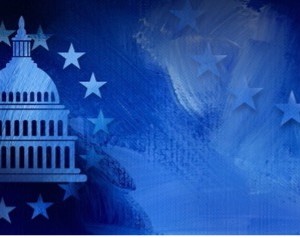NPDES Permit Term Extension Legislation Reintroduced In Congress; Call to Action!
Representative John Garamendi (D-CA) has reintroduced legislation to reform the National Pollutant Discharge Elimination System (NPDES) permit term from the current 5 years to 10 years. The bill was bipartisanly introduced with Representative Ken Calvert (R-CA) as an original co-sponsor. As explained in Representative Garamendi’s press release, the bill (H.R. 1181) would reform the NPDES permit term to “better reflect the project construction schedules for public agencies.” CASA originally worked with Representative Garamendi’s office when he first introduced the legislation in 2019. CASA worked with the office again this year on the introduction of H.R. 1181. The legislation has been referred to the Committee on Transportation and Infrastructure where it awaits consideration.
CASA sent a support letter for the legislation, along with other national water and local government associations, to Representatives Garamendi and Calvert’s offices. CASA is now calling on CASA members to send support letters to your House congressional delegations requesting Members co-sponsor the legislation. A template letter can be used to draft support letters.
CASA Submits Public Comment Letter on BABA
 Last week, CASA submitted a comment letter to the Office of Management and Budget (OMB) in response to its solicitation for public comment on its proposed rule: notice of proposed guidance to the Office of Management and Guidance for Grants and Agreements for Build America, Buy America (BABA) mandates. While the proposed rule seeks comments on specific questions pertaining to construction product definitions and guidance under BABA, it also provides the opportunity to comment on other sections of the guidance including Federal awarding agency’s issuance of a Buy America Preference waiver. CASA submitted comments addressing this section.
Last week, CASA submitted a comment letter to the Office of Management and Budget (OMB) in response to its solicitation for public comment on its proposed rule: notice of proposed guidance to the Office of Management and Guidance for Grants and Agreements for Build America, Buy America (BABA) mandates. While the proposed rule seeks comments on specific questions pertaining to construction product definitions and guidance under BABA, it also provides the opportunity to comment on other sections of the guidance including Federal awarding agency’s issuance of a Buy America Preference waiver. CASA submitted comments addressing this section.
In the public comment letter, CASA urges OMB, working with the U.S. Environmental Protection Agency, to provide a general applicability waiver consistent with the law’s public interest criterion to ensure that we can deliver on the Administration’s commitment to modernize our water infrastructure to address climate resiliency and safe and reliable water services for all Americans. The public comment submission period ended on March 13, 2023. OMB will review the public comments it received as it works to finalize its guidance.
EPA Announces Two Upcoming Public Listening Sessions
![]() The U.S. Environmental Protection Agency (USEPA) has announced two upcoming public listening sessions addressing the Agency’s activities relating to CERCLA regulation and the PFAS Strategic Roadmap objectives. The following summarizes the purpose of the upcoming sessions and how people can register for the events.
The U.S. Environmental Protection Agency (USEPA) has announced two upcoming public listening sessions addressing the Agency’s activities relating to CERCLA regulation and the PFAS Strategic Roadmap objectives. The following summarizes the purpose of the upcoming sessions and how people can register for the events.
CERCLA Potential Liability Listening Sessions For PFAS
USEPA Office of Enforcement and Compliance Assurance (OECA) has announced an upcoming listening session for March 23 to receive input on concerns of potential liability under CERCLA. The Agency will review and consider the input it receives during potential future drafting of CERCLA PFAS enforcement discretion and settlement policy to the extent that PFAS cleanup enforcement efforts occur under the law.
The session is scheduled for Thursday, March 23, 2023, from 10:00 a.m. to 12:00 p.m. (Eastern Standard Time. Registration is free, but spaces are limited. You can register here. USEPA has created a webpage with further information on the sessions and how to submit written remarks. The sessions are separate from USEPA’s PFOA and PFOS hazardous substance designation rulemaking process it is currently working to finalize.
The listening sessions will focus on enforcement policy related to responsible parties financial obligations under PFAS contamination response actions. USEPA will NOT provide responses to input it receives during this engagement.
Regional Listening Sessions for PFAS Strategic Roadmap Overview
Throughout this Spring, USEPA will be hosting a series of virtual listening sessions from now until the end of April focusing on the PFAS Strategic Roadmap directives within each USEPA Region, as well as provide communities the opportunity to share implementation feedback with their Region.
Specifically, the listening sessions will outline the Region’s:
- ongoing work under the PFAS Strategic Roadmap
- how the work impacts that specific region
- opportunities to provide direct feedback with Regional officials and staff
The purpose of the feedback is to inform the Regional leaders and USEPA’s PFAS Council leadership of the implementation of the Roadmap’s outlined regulatory actions.
California’s Region 9 listening session will be on April 13. Registration information for these sessions and information for how to provide feedback can be accessed on the Regional PFAS Community Engagement Sessions website.
White House Releases Fiscal Year 2024 Budget Request
 The White House released its Fiscal Year (FY) 2024 Budget Request. The request provides an overview of the funding levels the Administration would like to see federal agencies and departments funded at during the next fiscal year. The Budget Request supports the Administration’s policy priorities ranging from fighting climate change, investing in underserved communities, and supporting domestic manufacturing. The Administration will release its Budget Justifications next that will outline requested programmatic spending levels. However, the President’s Budget Request is a document that is broadly considered “dead upon arrival” in Congress, as lawmakers will work to develop spending bills aligned with their own fiscal priorities.
The White House released its Fiscal Year (FY) 2024 Budget Request. The request provides an overview of the funding levels the Administration would like to see federal agencies and departments funded at during the next fiscal year. The Budget Request supports the Administration’s policy priorities ranging from fighting climate change, investing in underserved communities, and supporting domestic manufacturing. The Administration will release its Budget Justifications next that will outline requested programmatic spending levels. However, the President’s Budget Request is a document that is broadly considered “dead upon arrival” in Congress, as lawmakers will work to develop spending bills aligned with their own fiscal priorities.
For the U.S. Environmental Protection Agency (USEPA), the Administration is requesting $12 billion which represents a 19% increase over FY2023 enacted level. Of the total $12 billion requested, the following are key top-line funding requests for Agency programs and activities.
- $5 billion to address climate crisis through reducing GHG’s.
- $1.8 billion for Environmental Justice activities, including implementing Justice40 initiatives.
- $4 billion for water infrastructure, focusing on rural and historically underserved communities needs.
- $4.0 billion for the Low Income Home Energy Assistance Program and gives States the option to use a portion of these funds for the Low Income Household Water Assistance Program.
- Funds all authorizations in the Drinking Water and Wastewater Infrastructure Act 2021.
- $1.64 billion for the Clean Water State Revolving Fund, and $1.12 billion for the Drinking Water State Revolving Fun, equal to the enacted FY2023 level.
- $2.9 billion for Superfund Program.
- $170 million for EPA for PFAS Strategic Roadmap directives.
For the U.S. Bureau of Reclamation (USBR), the Administration requests a total of $1.4 billion. The following summarizes key requested funding levels for USBR water assistance activities.
- $16.8 million for the Lower Colorado River Operations Program to implement drought contingency plans and response actions to maintain elevations at Lake Mead.
- $62.9 million for programs that work cooperatively with states, Tribes and local communities as they plan and implement actions to increase water supplies.
- $62.9 million for the Bureau’s WaterSMART Program of which:
- $24.0 million for the Drought Response program
- $13.7 million for the WaterSMART Grants
- $15.0 million for the Basin Studies program
- $4.0 million for the Title XVI program
- $3.4 million for the Water Conservation Field Services program
- $2.3 million for the Cooperative Watershed Management program $500,000 for the Ecosystem Restoration program.
- $16.8 million for the Lower Colorado River Operations Program to implement drought contingency plans and response actions to conserve storage at Lake Mead.
- $1.0 million for water infrastructure investments along the Texas border.
- $2.0 million for the Central Valley Project for drought planning and resiliency efforts.
- $15.0 million for Tribal drought assistance actions.
- $29.6 million for the Bureau’s Research and Development programs.




 @CASA_CleanWater
@CASA_CleanWater